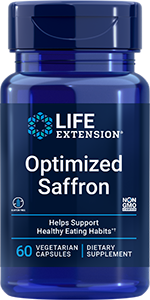Positive lifestyle changes associated with longer telomeres
Friday, September 20, 2013. The results of a pilot study described online on September 16, 2013 in The Lancet Oncology reveals that improvements in diet, exercise, stress management and social support are associated with longer telomeres: DNA-protein complexes at the end of chromosomes which shorten with cellular aging.
Acting on 2008 findings of an association between positive lifestyle changes implemented over a three month period and an increase in telomerase (the enzyme responsible for maintaining the cells' telomeres), Dean Ornish, MD of the University of California San Francisco (UCSF) and his colleagues analyzed the effects of lifestyle improvements on telomerase and telomeres over a longer period of time. The current study included 35 men with low-risk prostate cancer who had elected to undergo active surveillance. Ten men participated in the lifestyle intervention and 25 served as controls. The lifestyle program consisted of a diet high in whole foods, plant-based protein, fruit, vegetables, grains and legumes that was low in fat and refined carbohydrates; a moderate aerobic exercise regimen, stress management consisting of yoga, meditation and relaxation, and weekly support group sessions. Blood samples collected from the subjects at the beginning of the study and after five years were analyzed for peripheral-blood mononuclear cell telomere length and telomerase levels.
While prostate specific antigen (PSA, a marker of prostate cancer progression) levels increased slightly in both groups over the course of the study, the difference between the groups was not significant. Men who engaged in the lifestyle program had telomeres that were 10% longer on average at the end of the study, while the control group experienced an average 3% decrease in length. Greater adherence to lifestyle recommendations was associated with a corresponding increase in telomere length. The researchers did not observe a significant difference in telomerase activity between the treatment and control group at the end of the study period, but they remark that "Because the sample size is small, however, this finding cannot entirely rule out the presence of a difference that our study was underpowered to detect."
"Our genes, and our telomeres, are not necessarily our fate," stated Dr Ornish, MD, who is a clinical professor of medicine at UCSF. "So often people think 'Oh, I have bad genes, there's nothing I can do about it. But these findings indicate that telomeres may lengthen to the degree that people change how they live. Research indicates that longer telomeres are associated with fewer illnesses and longer life."
"The implications of this relatively small pilot study may go beyond men with prostate cancer," he added. "If validated by large-scale randomized controlled trials, these comprehensive lifestyle changes may significantly reduce the risk of a wide variety of diseases and premature mortality."
"This was a breakthrough finding that needs to be confirmed by larger studies," observed co-senior author Peter R. Carroll, MD, MPH, who is a professor and chair of the UCSF Department of Urology. "Telomere shortening increases the risk of a wide variety of chronic diseases. We believe that increases in telomere length may help to prevent these conditions and perhaps even lengthen lifespan." |
 |
 |
 |
|
Statin drugs are a class of pharmaceuticals commonly prescribed to lower low-density lipoprotein (LDL) cholesterol levels and reduce the risk of cardiovascular events. The cardiovascular benefits of a low dose of specific statin drugs may outweigh possible side effects for many individuals.
Researchers have uncovered another potential benefit for statins: that of reducing the rate of telomere shortening. Telomeres are bits of genetic material that cap the ends of the cells' chromosomes. Accelerated telomere shortening has been associated with a greater risk of age-related diseases including cardiovascular disease, as well as premature mortality.
In the September 2013 issue of The FASEB Journal, researchers at Second University of Naples measured white blood cell telomere length as well as the activity of telomerase (the enzyme responsible for maintaining telomere length), in 230 statin users and nonusers between the ages of 30 and 86 years. Telomerase levels were found to be higher among statin users independent of a number of factors, including age, smoking status and levels of inflammation. Those who used the drugs also exhibited a reduction in the loss of telomere length that accompanies aging. "By telomerase activation, statins may represent a new molecular switch able to slow down senescent cells in our tissues," commented researcher Giuseppe Paolisso, MD, PhD of the Second University of Naples' Department of Internal Medicine, Surgical, Neurological Metabolic Disease and Geriatric Medicine.
"The great thing about statins is that they reduce risks for cardiovascular disease significantly and are generally safe for most people," added Gerald Weissmann, MD, who is The FASEB Journal's Editor-in-Chief. "The bad thing is that statins do have side effects, like muscle injury. But if it is confirmed that statins might actually slow aging itself—and not just the symptoms of aging—then statins are much more powerful drugs than we ever thought." |
Life Extension is proud to present The Issue is Your Health, a lively, monthly video magazine show hosted by Michael A. Smith, MD, Senior Health Scientist. Every month, Dr. Smith brings the pages of Life Extension Magazine® to life with his insight and thought-provoking opinion into the latest and most important issues that affect your health and wellness. Each show addresses information about nutrition and techniques to optimize your well-being; pioneering research and disease prevention; as well as the latest, innovative scientific and medical breakthroughs from around the world. Watch Dr. Smith get up-close and personal with health influencers you've seen and read about each month in the print edition of Life Extension Magazine. Be inspired by intelligent ideas on how to live a healthier and longer life. The Issue is Your Health is informative, fresh, smart, and stimulating. Be sure to watch it every month to help you create a health-conscious lifestyle. In this issue, Steven V. Joyal, MD, Life Extension Chief Medical Officer, discusses the newly revised Disease Prevention and Treatment book, which includes 130 evidence-based health protocols. |
|

|

|
|
Satiereal® is a clinically studied, proprietary extract of saffron … a spice that's been prized since ancient Persia as a way to enhance mood and relieve stress.
Previously available only in Europe, this standardized saffron extract provides support for healthy body weight by targeting some of the emotional factors that make you eat more when you're trying to eat less.
Just two 88.25 mg capsules of Optimized Saffron with Satiereal® delivers the active constituents safranal and crocin, shown to modulate certain serotonergic receptors in the brain to support mood.
In clinical studies, women taking Satiereal® experienced:
- 100% reduction in the desire to snack
- 50% fewer instances of eating between meals
- Less hunger
- Moderate weight loss
- More energy
- Better mood
Satiereal® is a registered trademark of INOREAL. International Patents Pending.
This supplement should be taken in conjunction with a healthy diet and regular exercise program. Results may vary.
|
|

|
|
For those who want to maintain healthful levels of lipids in the blood, Advanced Lipid Control contains two powerful ingredients that help protect key aspects of cardiovascular function … black tea theaflavins and Indian gooseberry.
A staple beverage in many cultures for millennia, black tea contains theaflavins, beneficial flavonoids found naturally in its dried leaves. Scientists have discovered that these theaflavins provide multiple benefits for arterial health. As well as supporting healthy cholesterol levels already within normal range, theaflavins have been shown in human studies to protect against LDL oxidation and favorably affect endothelial function, thus helping to maintain a healthy circulation.
Scientists have found that black tea flavonoids possess strong antioxidant properties, which can help mitigate oxidative damage to cells and tissues from free radicals. Theaflavins have also been found to be helpful in regulating key inflammatory mediators in the body, thus helping to preserve endothelial integrity.
In addition, Advanced Lipid Control contains AmlaMax®, a patented extract of Indian gooseberry.
AmlaMax® is a registered trademark of DolCas Biotech, LLC. and is protected by U.S. patent No. 7,780,996. |
|
|
 |

|

|
|














